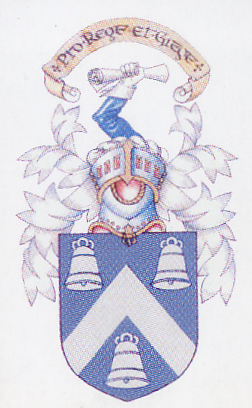
The Madras College Archive

|
|
The Madras College Archive |
|
|
Former Pupil Biographies Professor George Galloway (1861 - 1933)
He embarked on a research degree while serving as an assistant minister at Corstorphine and continued after his appointments in 1891 as Minister of Keton Parish. St Andrews awarded him a DPhil. in 1905. Edinburgh made him an honorary DD in 1911. In 1915 he was appointed Principal of St Mary's College, St Andrews and Primarius Professor of Theology. He was Baird Lecturer in the year 1916 to 1917. Galloway positioned himself in relation to contemporary developments in the philosophy of religion in an early paper on 'Hegel and the Later Tendency of Religious Philosophy' with which he began his Studies in the Philosophy of Religion (1904). He saw himself as part of a reaction against Hegel and as, to some extent, a follower of Lotze and as a committed pluralist. He was inspired to an interest in the development of religion by lectures he heard while in Berlin from Otto Pfleiderer, an interest that bore fruit in The Principals of Religious Development (1909). In the preface to his best known book, The Philosophy of Religion (1914), he announced that his 'general sympathy' in the matter of philosophical principles lay with 'the movement called Personal Idealism'. The Idea of Immortality (1919), the text of his Baird lectures, shows Galloway to have been unimpressed by the supposed metaphysical proofs of immortality. Neither did he believe that the 'results' of psychical research provided strong support. He was, however, attracted by Kant's moral argument and tentatively advanced a version of it according to which, as he puts it, personal immortality is 'a demand man makes on the uiverse in order that his moral world may be consistent and harmonious' Galloway published widely in journals ranging from Mind to the American Journal of Theology. Some of these articles were republished in the three collections he made of his minor writings. The Madras College Magazine for June 1933 reports: On Wednesday, 1st March 1933, the Very Reverend Principal George Galloway, D.Phil., D.D., of St. Mary's College died at Exmouth. The Principal had been ailing for over a year and several months before his death he went to reside in Exiiiouth in the hope that the change would improve his health. Since 1905 Dr. Galloway had been Principal of St. Marys and the passing of such a distinguished theologian and scholar will leave a great blank in the University life. Principal Galloway was born on 11th November 1801, and was the elder son of the late John Galloway, Stenton, Fife. He received his early education at the Madras College, and was a boarder at Seaton House. All his life he kept up his interest in the Madras, and during his Principalship of St. Mary's College he was for a period Chairman of the Madras College Governors. Since the reorganisation of the Madras he was one of the Trustees of the Endowments and served on the School Management Committee. His advice was always sound. Proceeding to St. Andrews University, he had a successful student career, and graduated M.A., with First Class Honours in Philosophy, in 1884. He took his Divinity course at Edinburgh University, where he graduated B.D. in 1887. At Edinburgh he carried off the highest award in the Divinity faculty—the Pitt Scholarship. Later he studied at Gottingen and Berlin. Since 1922 Principal Galloway was the Honorary President of the Madras
College
Club. |
||